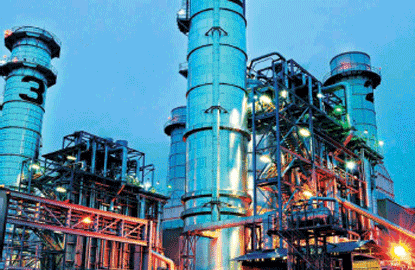
If you think media reports about the scandalridden 1Malaysia Development Bhd have unnerved even the most daring of fund managers, think again. As many as 13 funds sold in Singapore hold US dollar-denominated bonds issued by the scandal-ridden state fund. And, the managers of some of the funds that hold the bonds say they purchased them as recently as last year, when stories of money being diverted from 1MDB were already making headlines.
The bonds held by these funds are a US$1.75 billion ($2.39 billion) note issued by 1MDB Energy Ltd in 2012 and a US$3 billion note issued by 1MDB Global Investments Ltd in 2013. Both bonds have a 10-year tenor. While trading in these two bonds has been volatile, neither has totally collapsed yet. According to Bloomberg, 1MDB Energy bonds last traded at 104 cents on the US dollar to yield 5.1%. 1MDB Global Investments bonds traded below par at 84.9 cents to yield 7.2%. Malaysian government bonds maturing in 2023 yield about 3.8%.
Yet, there could be more bad news ahead. On May 11, 1MDB failed to make a US$52.4 million interest payment to 1MDB Energy bondholders — the company’s second bond default in less than a month. 1MDB had previously missed a US$50.3 million payment on a separate US$1.75 billion note, issued by 1MDB Energy (Langat) Ltd. Abu Dhabi sovereign-wealth fund International Petroleum Investment Co (IPIC) has made full payment of interest to holders of the defaulted bonds under its obligation as co-guarantor. IPIC and 1MDB are currently locked in a bitter dispute over who should make the payments.
Among funds that list holdings of 1MDB bonds in the most recent filings are three from the Fidelity International group. As at Oct 31 last year, the fund group’s Emerging Market Debt fund, Global Multi Asset Income fund and Growth & Income fund all had some exposure to the 1MDB Global Investments bonds. When approached for comment, Fidelity International said by email its funds bought 1MDB Global Investments bonds in early 2015 as they “looked attractive on a relative value basis” versus Sri Lanka government bonds maturing in 2022. The asset manager believes this is still the case.
“Although 1MDB is not rated, the 1MDB Global Investments bond is rated A- by S&P, in line with the Malaysian sovereign [bond], as it carries a Letter of Support by the Malaysian Ministry of Finance,” Fidelity International said, adding that Fidelity Funds-Emerging Market Debt continues to hold the bonds.
Another fund that holds 1MDB bonds is the NN (L) Emerging Markets Debt (Hard Currency) fund. As at September 2015, the US$3 billion fund held some US$50.4 million of 1MDB Global Investments bonds. The bonds were also NN (L) Emerging’s largest bond holding at the time, equivalent to nearly 2% of its total assets. To date, the fund has gained 11.6%, slightly ahead of the performance of its benchmark, the JPM EMBI Global Diversified, hedged to EUR Index.
Meanwhile, BlackRock has five funds that hold 1MDB bonds. As at Feb 29, the US$2.5 billion BGF Emerging Markets Bond fund held some US$31.4 million of 1MDB Global Investments bonds, which was equivalent to 1.8% of its total assets. The US$1.8 billion BGF Asian Tiger Bond and US$8.6 billion BGF Fixed Income Global Opportunities funds hold both 1MDB Global Investments and 1MDB Energy bonds.
In a statement on May 9, 1MDB said it had started an “outreach and engagement process” with holders of the company’s US-dollar denominated bonds. “1MDB will now actively engage with all holders in order to outline the next steps of the process; explain the background of the dispute; clarify why 1MDB has taken the position to not make the interest payment on the Langat [1MDB Energy (Langat)] notes; and reiterate that 1MDB has a rationalisation plan in place that enables the company to meet its existing debt obligations.”
To recap, 1MDB Energy issued bonds to finance the controversial RM8.5 billion purchase of power plants from Malaysian billionaire T Ananda Krishnan in 2012. Meanwhile, proceeds from the 1MDB Global Investments bonds were initially earmarked for the development of the Tun Razak Exchange, a 70-acre real-estate development in the heart of Kuala Lumpur. However, US$1.56 billion was instead placed in “various investment portfolios”, while the balance was utilised for “working capital and debt repayment purposes”, according to 1MDB’s 2014 audited accounts.
The fund’s 2015 accounts, which were due on Sept 30 last year, have yet to be filed.
This article appeared in the Personal Wealth of Issue 729 (May 23) of The Edge Singapore.